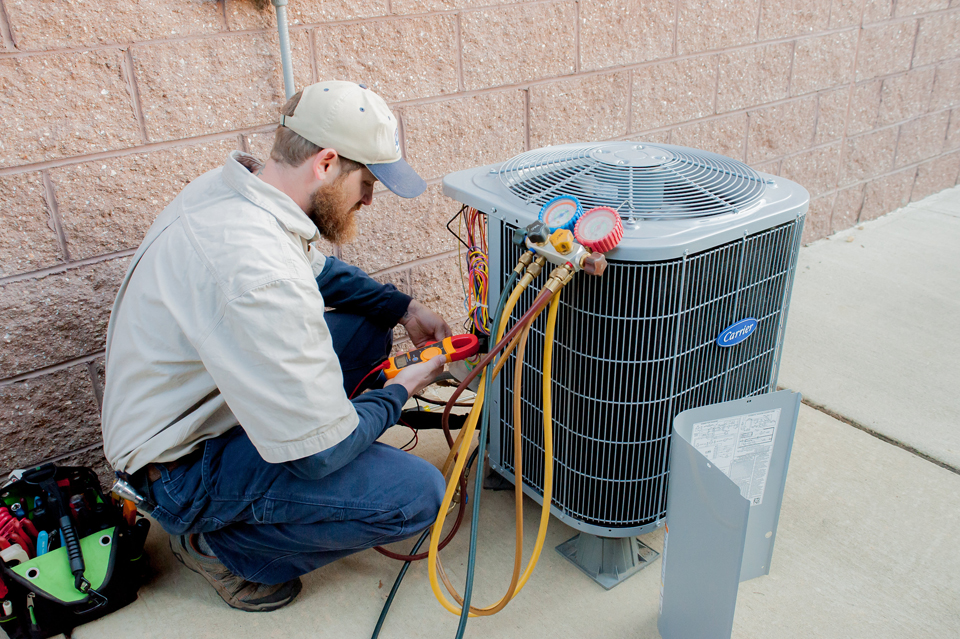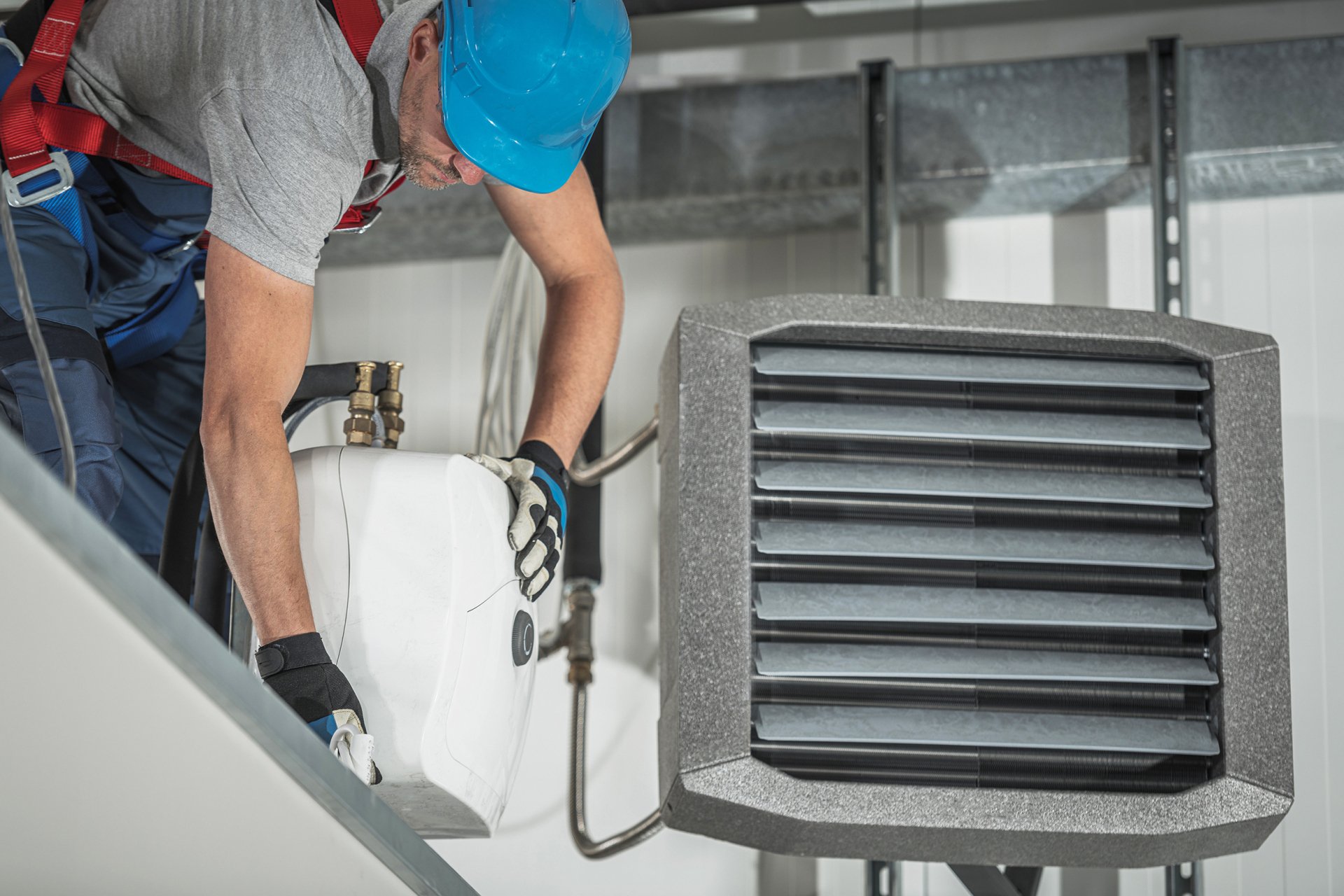What to Expect During a Professional furnace replacement
What to Expect During a Professional furnace replacement
Blog Article
Picking In Between a Heatpump and Heater: Secret Factors To Consider for Your HVAC Needs
When examining heating choices for HVAC needs, the decision in between a heat pump and a heater can be complex. Each system provides unique benefits customized to certain environments and power efficiency objectives. Understanding these distinctions is essential for making an enlightened option. Secret variables such as installation prices and ecological effect further make complex the choice process. Which option truly straightens with one's comfort and sustainability preferences? The following areas will discover these considerations carefully.
Understanding Warmth Pumps: Exactly How They Function and Their Advantages
While several house owners consider different home heating choices, understanding exactly how heatpump feature and their advantages can significantly influence their choice. Warm pumps operate by moving heat instead of producing it. In the wintertime, they draw out heat from the outdoors air or ground and move it indoors, while in the summertime, they reverse this process, cooling the home by getting rid of heat outside. This dual performance makes them flexible for year-round climate control.One of the key benefits of heatpump is their energy effectiveness. They utilize significantly much less electricity contrasted to typical heating unit, potentially causing lower utility expenses (ductless mini splits). Additionally, warm pumps have a smaller carbon impact, making them an ecologically friendly selection. They likewise require less maintenance than conventional systems, adding to lasting price savings. Overall, comprehending the technicians and advantages of heat pumps can help home owners make notified choices concerning their home heating and cooling down needs
Checking Out Heating Systems: Kinds, Procedure, and Advantages
Heating systems come in various types, including gas, electric, and oil versions, each with distinctive operational devices. Understanding these differences is essential, as they influence performance and home heating efficiency. In addition, furnaces supply various benefits, such as regular warmth output and reliability in cooler environments.
Kinds of Heating systems
Heating unit can differ substantially in style and operation, with heating systems being a popular option amongst home owners. There are several sorts of heaters, each making use of different fuel sources and modern technologies. Gas furnaces are typical, leveraging all-natural gas to generate heat effectively. Electric heating systems, on the other hand, utilize electric resistance to create heat, typically favored for their uncomplicated setup. Oil furnaces, while less usual, are effective in locations with minimal gas gain access to (heat pump service). In addition, condensing heating systems make the most of power effectiveness by catching and recycling exhaust gases. Each kind runs via a system of heat exchangers and ductwork to distribute cozy air throughout a home. Comprehending the differences between these heater types is necessary for informed heating and cooling choices
Benefits of Furnaces
For house owners looking for dependable warmth during cool months, the advantages of heaters are considerable. Heaters offer regular home heating, making certain even temperatures throughout the home. They are specifically effective in severe chilly, typically outperforming heat pumps in icy conditions. Different types, consisting of gas, electric, and oil furnaces, offer versatility to fulfill varied demands and preferences.Furnaces also often tend to have reduced preliminary installment costs contrasted to heatpump, making them a more accessible choice for many. Their durable design contributes to a longer life-span, with lots of devices lasting over 15 years with correct upkeep. Furthermore, contemporary heating systems are commonly geared up with innovative technology for boosted effectiveness, which can cause minimized energy costs. Overall, furnaces stay a reputable choice for effective home heating.

Energy Efficiency: Contrasting Warm Pumps and Furnaces
When contrasting power performance between heat pumps and heaters, the Seasonal Power Effectiveness Proportion (SEER) plays an essential function in identifying efficiency. Additionally, an operational expense analysis discloses the long-lasting monetary implications of each system. Understanding these aspects can direct property owners in making educated decisions about their heating solutions.
Seasonal Power Performance Proportion
Power effectiveness plays a vital role in the decision-making procedure between warm pumps and furnaces, specifically when taking into consideration the Seasonal Energy Effectiveness Proportion (SEER) This statistics procedures the cooling performance of heatpump over a whole air conditioning season, supplying a standard means to assess efficiency. Greater SEER rankings suggest higher energy performance, equating to reduced energy intake and lowered energy costs. In contrast, heating systems are usually examined using the Yearly Gas Utilization Performance (AFUE) rating, which reflects home heating performance. When comparing these two systems, home owners must prioritize SEER ratings for heat pumps, as they directly effect general energy cost savings and environmental sustainability. A thorough understanding of SEER can notably influence the long-term fulfillment and cost-effectiveness of the selected heating and cooling service.
Functional Expense Analysis
Comprehending visite site the operational costs connected with heatpump and heaters is crucial for house owners examining their alternatives. Heatpump commonly supply higher energy effectiveness, transforming electrical power into warm with marginal waste. This leads to reduced regular monthly utility bills, specifically in modest environments. Alternatively, standard heaters, especially gas models, might have reduced upfront expenses yet can incur higher operational expenditures in time because of fuel rates and efficiency ratings.Moreover, heat pumps can operate as both home heating and cooling down systems, possibly minimizing the requirement for separate cooling and heating systems. While preliminary financial investments for heatpump may be greater, their long-lasting cost savings in energy performance can make them a much more cost-effective choice for numerous houses. Careful analysis of neighborhood energy prices is important to establish the best choice.
Installation Costs: What to Expect for each and every Furnace
Installment expenses for heating unit can differ significantly in between heatpump and heaters, influencing home owners' choices. Heat pumps generally have higher upfront setup costs, normally varying from $3,500 to $8,000, relying on the unit dimension and complexity of installment. This consists of the outside unit, interior handling system, and needed ductwork modifications. Alternatively, furnaces tend to have reduced preliminary expenses, balancing between $2,500 and $6,000, which can be appealing for budget-conscious home owners. Installation expenditures can increase if extensive ductwork is required.Moreover, the selection of gas kind for heating systems-- all-natural gas, lp, or electrical-- can likewise impact setup prices. While warmth pumps offer power effectiveness, their preliminary financial investment may prevent some customers. Eventually, assessing installment costs alongside long-lasting savings and efficiency will aid property owners in making notified choices regarding their heating systems.
Environment Factors To Consider: Which System Does Much Better in Your Location
Exactly how do climate problems influence the efficiency of furnace? The performance of heatpump and furnaces can vary greatly depending upon the neighborhood environment. In modest climates, heat pumps succeed by efficiently transferring warmth from the outside air, making them an energy-saving alternative. Their effectiveness lessens in incredibly chilly temperature levels, where they might struggle to extract enough warmth. Alternatively, furnaces, especially gas versions, supply constant and reliable heat regardless of exterior problems, making them preferable in chillier regions.In areas that experience milder winter seasons, heatpump can operate effectively year-round, supplying both home heating and cooling. On the other hand, regions with harsh wintertimes commonly profit from the robustness of heating systems. Inevitably, recognizing the local climate is important when choosing between a warmth pump and a heater, as it directly affects their functional efficiency and total performance.
Upkeep Requirements: Long-Term Look After Heat Pumps vs. Furnaces
While both warmth pumps and heating systems need regular upkeep to ensure peak efficiency, their particular requirements and treatment regimens differ considerably. Furnaces normally need less frequent interest, with annual evaluations sufficing to inspect for gas leakages, tidy filters, and examine overall functionality. Their less complex layout frequently permits straightforward repairs.In contrast, warmth browse around this web-site pumps require semiannual maintenance due to their twin duty in heating and cooling. This includes cleansing coils, checking cooling agent degrees, and making certain that both the outside and interior devices function at their finest. Furthermore, heat pump upkeep usually includes even more detailed elements, making specialist maintenance essential.Neglecting upkeep can lead to reduced performance and enhanced power costs for both systems. Ultimately, property owners need to take into consideration these lasting care needs when choosing between a heatpump and a heater, as proactive upkeep can prolong the life expectancy and performance of either system significantly.
Environmental Effect: Choosing a Sustainable Home Heating Option
The environmental impact of heater is a critical assessment for property owners seeking sustainable alternatives. Heatpump are usually much more energy-efficient than traditional heaters, as they transfer warmth as opposed to create it, considerably lowering carbon emissions. By utilizing sustainable energy resources, such as geothermal or air-source warm pumps, property owners can additionally minimize their ecological footprint.On the other hand, gas heating systems emit greenhouse gases and contribute to air contamination, though they usually offer higher warm output. Nonetheless, advancements in innovation have actually resulted in the growth of high-efficiency heaters that minimize emissions.Ultimately, picking a heating unit involves evaluating effectiveness versus ecological effect. Home owners are urged to review neighborhood power sources and motivations for eco-friendly systems, making certain a choice that lines up with both individual convenience and ecological responsibility. The choice influences not only prompt convenience however additionally long-lasting sustainability and ecological wellness.
Often Asked Inquiries
The Length Of Time Do Warm Pumps and Furnaces Normally Last?
The life-span of warmth pumps generally varies from 15 to twenty years, while heating systems can last in between 15 to 30 years. Normal maintenance considerably influences their longevity and effectiveness in offering heating services.
Can I Use a Warm Pump in Extremely Cold Climates?
Heatpump can operate in incredibly cold environments, yet their effectiveness reduces as temperatures decrease. In such problems, supplemental home heating resources might be essential to maintain comfy indoor temperatures and guarantee peak efficiency.

What Is the Sound Level of Warmth Pumps Versus Furnaces?
The noise levels of warm pumps and furnaces differ considerably. Generally, warm pumps operate even more quietly than conventional furnaces, making them more suitable for those conscious appear, while heaters may create louder functional sounds throughout home heating cycles.
Are Heat Pumps Suitable for Both Home Heating and Cooling?
Warmth pumps are without a doubt ideal for both cooling and heating (ductless mini splits). They work by transferring warm, providing reliable temperature control year-round, making them a functional choice for homeowners looking for an all-in-one a/c official site option
What Size Heating System Do I Need for My Home?
Figuring out the suitable dimension heater for a home requires evaluating elements such as square video, insulation top quality, regional environment, and the home's format. Consulting a specialist can assure a precise assessment and ideal convenience. Heat pumps commonly offer higher energy effectiveness, transforming electric energy right into heat with very little waste. In moderate climates, warmth pumps succeed by successfully transferring warmth from the outdoors air, making them an energy-saving choice. On the other hand, heaters, specifically gas designs, offer trusted and constant warmth no matter of exterior problems, making them preferable in cooler regions.In areas that experience milder winters months, warmth pumps can run effectively year-round, supplying both heating and cooling. Warmth pumps are generally much more energy-efficient than conventional furnaces, as they transfer warm instead than generate it, considerably decreasing carbon discharges. By using renewable power sources, such as air-source or geothermal warmth pumps, home owners can additionally lessen their environmental footprint.On the various other hand, natural gas heaters emit greenhouse gases and contribute to air contamination, though they usually provide higher heat result.
Report this page